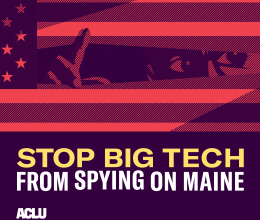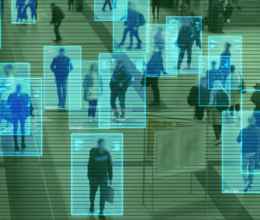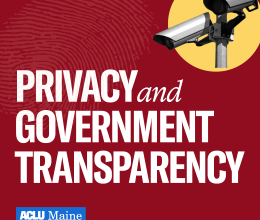According to a newly disclosed email, obtained by the ACLU through the Freedom of Information Act, the Drug Enforcement Administration and the Bureau of Alcohol, Tobacco, Firearms and Explosives collaborated on plans to monitor gun show attendees using automatic license plate readers.
A little history is worth noting here: In 2012, the ACLU filed public records requests in 38 states seeking information about the use of automatic license plate readers. Our report, You Are Being Tracked, summarized the findings of those state-level requests.
But we didn’t stop there. We also filed FOIA requests with federal agencies, including the DEA.
Out of that continued persistence came this new DEA email, which was heavily redacted. (Surprise, surprise.) Even with the redactions, we were able to conclude that these agencies used license plate readers to collect information about law-abiding citizens attending gun shows. (Keep in mind that an automatic license plate reader cannot distinguish between people transporting illegal guns and those transporting legal guns, or no guns at all; it only documents the presence of any car driving to the event.) Mere attendance at a gun show, it appeared, would have been enough to have one's presence noted in a DEA database.
This would not have been the first time that the government has used automatic license plate readers to target the constitutionally protected right to assemble. In 2009, the Virginia State Police, in collaboration with the Secret Service, recorded the license plates of vehicles attending President Obama’s inauguration, as well as campaign rallies for Obama and vice presidential candidate Sarah Palin.
In DEA’s defense, they responded to our inquiries and said that the monitoring of gun shows was merely a proposal and was never implemented. As glad as we were to hear that, questions still remain. Chief among them: if the program was cancelled, why didn’t the ACLU get any documents reflecting that decision in response to our FOIA request? The agency ought to release such documents, and they should additionally create and release a written policy that it will not target First Amendment-protected activity in the future.
If there is any good news out of this, it’s that Maine is a leader in the pushback against automatic license plate readers, just as we are with privacy rights in general. Back in 2010, the Maine Legislature passed an important bill that placed significant safeguards on the deployment of automatic license plate readers in our state, including strict limits on the development of police databases for tracking people’s movements. The unique legislation, which only exists in two states, also provides for purging of data pertaining to law-abiding citizens every 21 days and ensures that the databases are confidential.
While this newest invasion of privacy might not be the most egregious of all time, everyone’s privacy matters, and detailed tracking of innocent people is not acceptable. Whether you’re heading to a gun show or just driving around town, the government should have no right to track your every movement and store it in a secret database.







